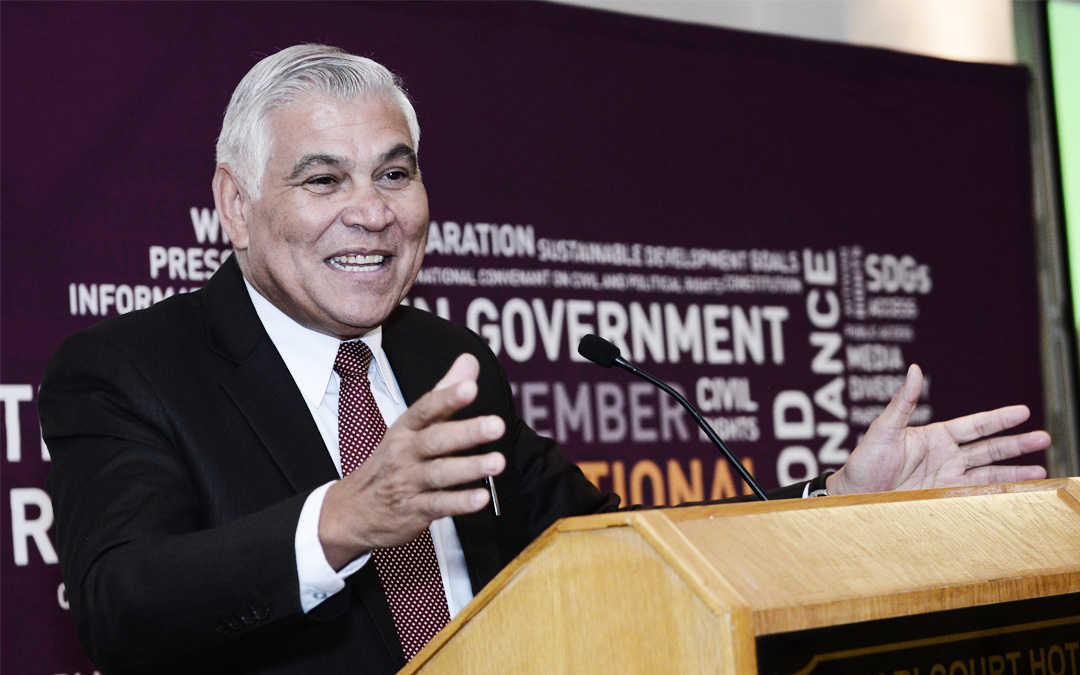Government’s refusal to publicly release the land resettlement list was criticised by Ombudsman John Walters on Thursday at the official commemoration of International Day for Universal Access to Information in Windhoek.
Walters made the criticism at the Namibia Internet Governance Forum in Windhoek last week, during which access to information day was celebrated.
Walters said he experienced a lack of access to information first hand and explained that three weeks earlier he had requested of the land reform ministry to publish the resettlement list, but his request was ignored.
“It was a request made during the drafting of a report on all kinds of discrimination. I wrote three weeks ago and up until now, I got no response,” he said. “Is it a state secret? Will it endanger the public interest? So then why [the secrecy]? [As] we move in the direction of legislation for access to information, this is happening,” said Walters.
He called on the information minister to fast-track the access to information bill.
“I do not know how far the minister has gone, but we hope he gives us the draft soon and I hope he moves even faster to adopt the bill,” said Walters.
He said that once the law was passed, for it to be properly implemented to be meaningful to the public, relevant authorities had to be adequately resourced.
He said freedom of information or the right to access to information was a universal right and was the touchstone of all freedoms, as it embodied the right to know and to make free choices.
“Public authorities hold information not for themselves, but as custodians of the public good and every citizen has the right to access this information. Information is the currency of transparency,” Walters said.
He said the adoption of access to information legislation and placing the responsibility in the hands of the ombudsman, would strengthen the effectiveness of the ombudsman in enhancing transparency.
Walters said the lack of responses from government departments was linked to a culture of secrecy in both state and private institutions, which should be transformed to a culture of openness and transparency.
Misa Namibia’s last director, Natasha Tibinyane at the same event also released the Misa transparency report, in which it highlighted progress made on access to information and the need for public institutions to use the internet. She said various public institutions, such as the poverty eradication, environment, and trade ministries, Namibia Financial Institutions Supervisory Authority (Namfisa), the Communications Regulatory Authority of Namibia (Cran), the Namibia Statistics Agency (NSA) and the Electoral Commission of Namibia (ECN) had been assessed on their openness in July and August.
As a result, it was found that the most secretive institution was the justice ministry, while the most open institution was found to be Cran.
Tibinyane called on government to appoint competent communications officers. In a statement read on her behalf by Unesco country representative Jean-Pierre Ilboudo, Unesco director general Irina Bokova said access to information was a fundamental human right and important in a globalising world.
Bokova said informed citizens could hold their governments accountable and make informed decisions.
See full keynote address of Ombudsman John Walters here.

